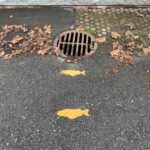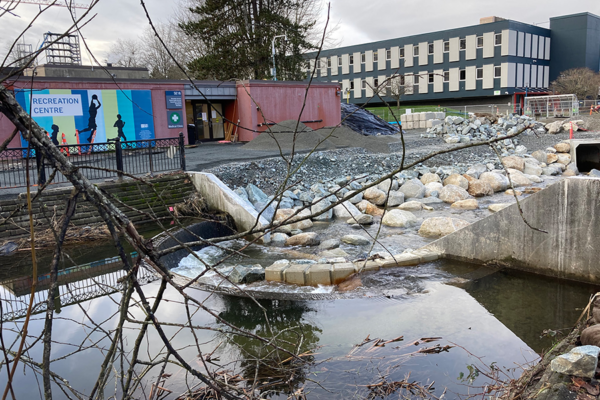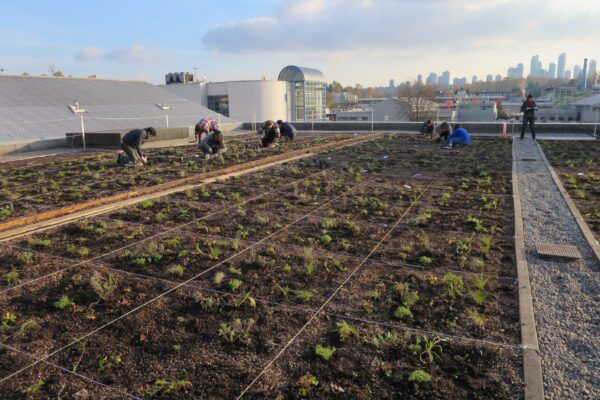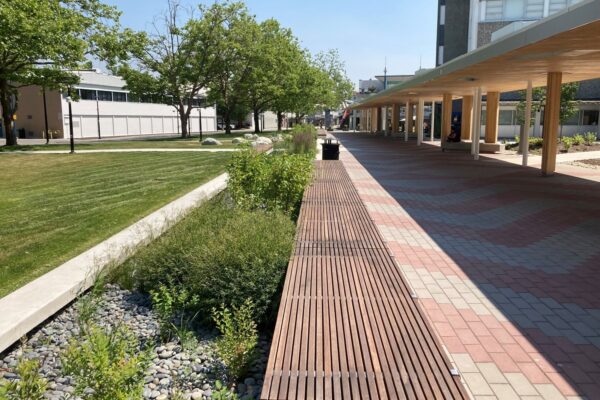
Maximize permeability across BCIT campuses in order to improve groundwater recharge and eliminate storm sewer discharge. Through integrated stormwater management, increase opportunities to harvest, retain, and store rainwater, including in anticipation of extended periods of drought, with an aim to reduce reliance on externally supplied potable water.
Why we are working towards becoming water balanced
- Increase the quantity and improve the quality of hydrological flows to achieve a water balance resembling the original watershed capacity.
Wise water management means conservation. Through conservation efforts, BCIT has reduced total water consumption by 60%, but further conservation efforts are necessary, and economic.
The less water we use, the less wastewater we produce. Implementing grey water recycling (filtering and sanitizing water from taps for re-use in irrigation systems and toilets) could improve resilience in the face of longer, hotter and drier summers from climate change.

It also means ensuring that wastewater is not tainted with materials toxic to wildlife. Initiatives include the storm drain marking program where the yellow fish remind us that whatever we put on the road makes its way into Guichon Creek, which flows through and under the campus, to join other streams and rivers.
Did you know that the average annual rainfall on Burnaby campus’ built area is twice the amount of potable water delivered to Burnaby campus through the municipal and regional water distribution system? The challenge is that most of the rain falls in the winter, so conservation efforts remain important through the summer.
Leaking faucets
Fixing a dripping tap can save up to 300 litres of drinking water per week.
If you see a leaking faucet on campus, please report it to Facilities Services. Taking this action not only conserves a precious resource, it also conserves the energy needed to pump, heat and treat our water.



